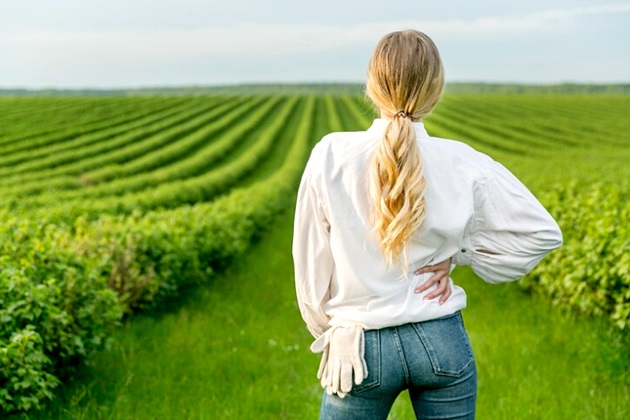755

After a action-packed 2022, where the EU's agri-food sector was disrupted by Russia's invasion of Ukraine, Euractiv wonders about the main themes that marked Europe's agriculture in 2023. Here they are:
CAP, the Real Fun
With the approval of the Dutch CAP plan on December 13, 2022, after weeks of debates, the new EU agricultural subsidy program came into effect on January 1.
For the first time, we witnessed how this new Common Agricultural Policy (CAP) reform unfolded and what it truly means for farmers. As this is the first time farmers and EU countries have implemented their own CAP plan, some teething problems have arisen, not least because the European Commission is already looking for ways to reshape and improve these plans in the first annual updates.
Ukraine
Russia's invasion of Ukraine has sent shockwaves through global agri-food markets, and this is likely to continue until the end of 2024.
"In the short term, the situation is particularly full of multiple challenges facing farmers next spring," according to a December report from the UN's Food and Agriculture Organization.
It warned that "the decrease in profitability and reduced income-generating prospects among cereal producers had a substantial impact on their ability to grow critical cereal crops and other staple foods in 2023."
Meanwhile, an influx of cereals on the EU's solidarity pathways is causing growing tensions at the border between Ukraine and the EU.
EU farmers have sounded the alarm about the flood of Ukrainian products, namely cereal and seed oils, disrupting markets in neighboring countries, including Poland, Romania, and Bulgaria.
"We need a complete description of the situation before making any political decision," said Agriculture Commissioner Janusz Wojciechowski, adding that the EU executive is closely monitoring the situation in sensitive sectors to see if this free trade situation will extend.
Swedish Priorities
Sweden will take its turn at the helm of the rotating EU Council presidency from January 1, 2024. According to its recently published priorities, in terms of agriculture, the Swedish presidency will focus on the market situation in light of Russia's invasion of Ukraine and trends in agricultural input prices to "maintain the ability to cope with any crisis or other market disruptions."
It also promises to make efforts to strengthen European food production, address trade-related agricultural issues, and prioritize activities regarding the role and potential of the bioeconomy.
The Swedish presidency will oversee a series of key agri-food dossiers, the details of which can be found below.
Front-of-Pack Labeling
The European Commission and EU legislators will continue piecing together the complex puzzle of front-of-pack food labeling during the upcoming Swedish presidency of the EU Council, after little progress was made under the Czech presidency.
Initially slated for the end of 2022, the decision on a harmonized EU-wide front-of-pack nutritional label was pushed to 2023, and continuing the contentious dossier will be a key priority of the Swedish presidency, according to their program.
Expect intense lobbying in the run-up to this proposal, with exchanges of fire from all sides.
Pesticides, a Key Issue
In June, the EU executive revealed its plan to revise the bloc's framework for plant protection products, the Sustainable Use of Pesticides (SUP) regulation, the main vehicle to realize ambitions to halve the use and risk of pesticides by 2030.
But these plans proved unpopular among member states, which officially requested an additional impact assessment from the EU executive regarding the plans' impact on food security.
This could "delay or derail" the advancement of the ambitions, according to green groups. The Commission will now have to present more information no later than six months after its entry into force.
New Genomic Techniques
The second quarter of 2023 brought the long-awaited verdict from the Commission on whether to weaken EU rules on new genomic techniques.
The Commission has already given several indications that it will support the deregulation of NGTs, including as a sweetener for some of its other environmental plans.
Meanwhile, the Commission also unveiled its initiative on protecting, sustainably managing, and restoring the EU's soils around the same time.
The EU executive also presented a review of the food and textile waste aspects of the EU Waste Framework Directive around the same time.
A new study by the European Commission concluded that even the current legal framework regulating new genomic techniques (NGTs) is insufficient and suggested that new policy tools should be considered to harness the benefits of this technology.
Animal Welfare and Food Systems Law
While most of the 27 agriculture ministers agree that legislation, which has not been updated since 2009, is due for renewal, many have expressed concerns about how stricter standards within the EU would affect the competitiveness of the domestic livestock sector.
Therefore, there have been several discussions about how these new rules will apply to imported products.
But the law aims to create a comprehensive EU approach to food to "promote policy coherence at the European and national levels, integrate sustainability into all food-related policies, and strengthen the resilience of food systems."
New REACH
After suffering a series of delays, the revision of the Registration, Evaluation, Authorization, and Restriction of Chemicals (REACH) regulation, announced as part of the Commission's chemicals sustainability strategy, was officially presented towards the end of 2023.
But, according to sources familiar with the issue, the Commission intends to proceed with presenting the proposal as soon as it is ready, which means it may come earlier. The new framework will affect a wide range of chemicals, from pesticides to polymers used to create plastic materials.
After delays, the Commission is also expected to present its action plan for Integrated Nutrient Management (INMAP).
INMAP aims to achieve the EU Green Deal's objectives of reducing nutrient losses by at least 50% and fertilizer use by at least 20% by 2030 in Europe and will complement the Zero Pollution Action Plan.




